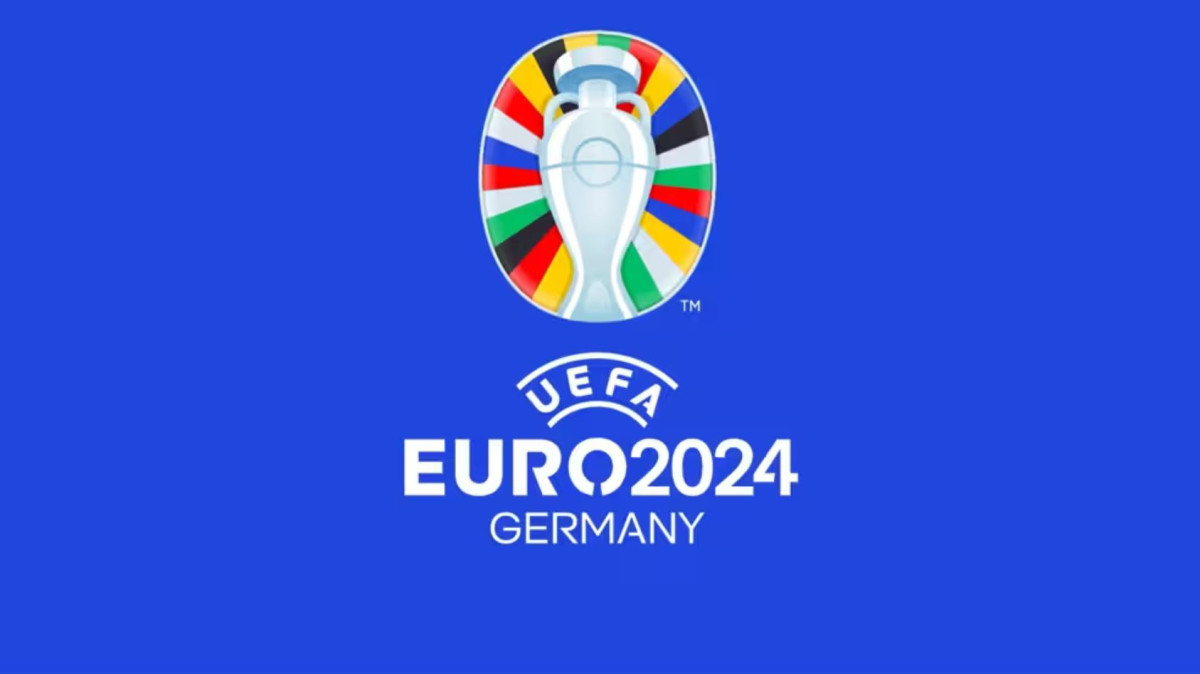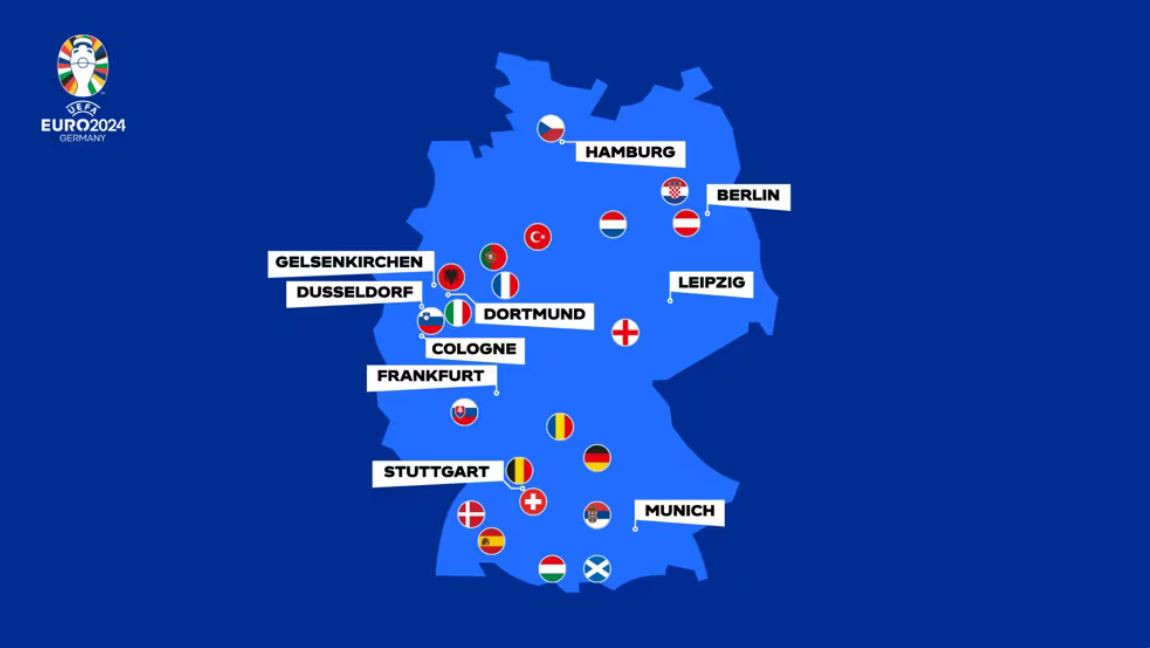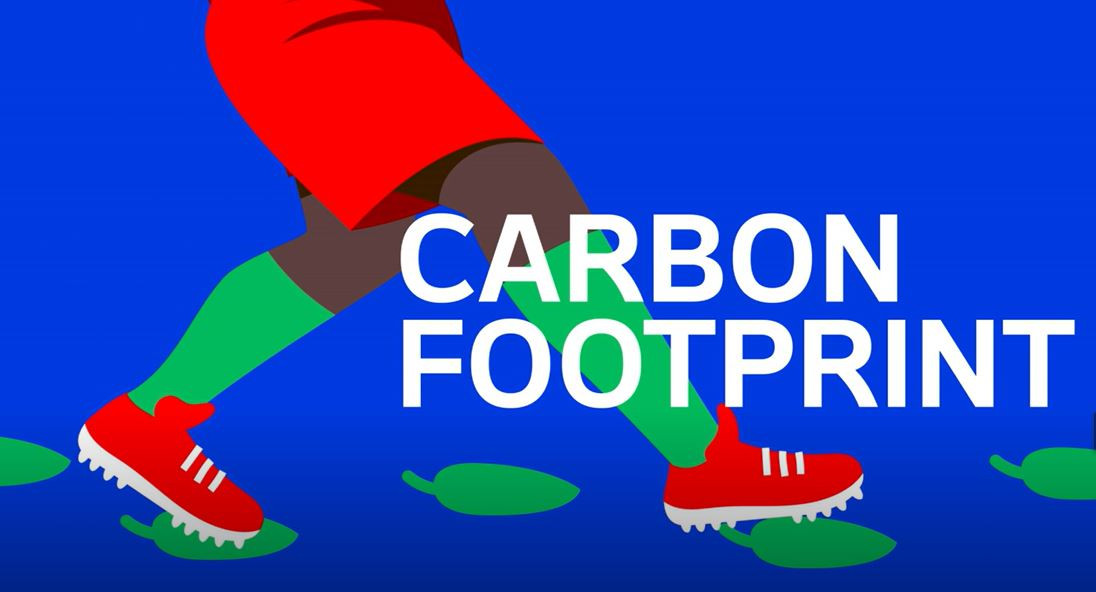Euro 2024: The most sustainable football championship of all time?
Football is a carbon-heavy business. Energy-hungry stadiums are floodlit, heated and cooled, and turf kept match-ready with vast volumes of water. Hordes of fans travel to cheer on their teams – and then there’s merchandise and catering. All this can add up to major international championships lasting a few weeks making as a big a dent in the global carbon budget as a small country like Barbados does in a year.
And just as nations must show they are limiting their climate impact, so football bodies have promised to get their house in order. At COP 28 in December, UEFA presented its 32 million-euro environmental, social and governance strategy for Euro 2024, which will last from 14 June to 14 July. Working with the German Football Federation (DFB), it promised that the home of the Energiewende – as well as the first national football league to set environmental standards for its clubs – would host “the most sustainable European championship of all time.”
Rail links to the heart of Europe
From the start, sustainability was central to Germany’s bid to host the UEFA Euro 2024 championship. And being at the “heart of Europe” is central to the DFB’s Euro 2024 sustainability concept. The Euro 2020 championship, which was postponed to 2021 because of the pandemic and took place in 11 different countries, drew widespread criticism for the climate impact of the associated international travel.
Even though all games will take place in Germany this year, around 80 percent of the championship’s carbon footprint is expected to come from transport, as fans flock in from across the continent and beyond. A total of 2.7 million tickets are available for the tournament's 51 games scheduled in 10 stadiums, and Germany’s National Tourist Board expects an additional seven million visitors in fan zones and at public viewing events. During the first sales phase in October 2023, there were more than 20 million ticket applications from a total of 206 countries. Most applications came from host country Germany, followed by the United Kingdom, France, Spain, and Austria. "Outside Europe, the USA, Canada, Australia, China and Mexico were among the top five nations with over 525,000 ticket applications," UEFA said.
UEFA is subsidising a 25 percent discount on Interrail passes to tempt Euro 2024 ticketholders away from budget airlines – as well as a 29-euro ticket for travel between host cities. Rail operator Deutsche Bahn has also promised 10,000 extra match-day seats on high-speed ICE trains. Car parking, meanwhile, will be heavily restricted. DFB also says it has scheduled Euro 24 matches to minimise team travel during the group phase and requires teams to develop their own emission-saving plans, including the use of low-emissions vehicles.
An alliance of environmental NGOs including Germanwatch and Transport & Environment urged the German team to travel sustainably during the tournament by choosing low-emission modes of transport such as rail. “As hosts in particular, we should and can set a good example,” they said in an open letter.
Efficient stadiums and veggie bratwurst
If Germany’s transport links and convenient geography gave it an ecological edge over rival bidder Turkey, then so do its stadiums. While Turkey would have needed to completely rebuild two venues, Germany already had a fleet of energy-efficient stadiums.
In its sustainability concept, the DFB says it will further minimise emissions by going easy on floodlighting and restricting power consumption in media centres. It will use renewable power in stadiums and headquarters – and where it does employ generators, they will be “state of the art environmentally friendly” ones. Measures to minimise water consumption are also promised.
Vegetarian alternatives will be on offer alongside the traditional match-side bratwurst – with minimal, recyclable packaging. “This is the first time all the stadiums and also public viewing areas plan to have reusable cups, so that’s definitely progress,” said Hartmut Stahl, lead author of a feasibility study for a “Climate-neutral UEFA EURO 2024” by environmental think tank Oeko-Institut, which was commissioned by the German environment ministry and published in 2022.
More than two-thirds of non-transport-related emissions for the championship are expected to come from overnight stays by fans and officials – compared to just 7 percent from electricity consumed in stadiums. Ultimately, only offsetting could bring the carbon balance closer to net-zero. But in recent years, the widespread practice of using offsetting to claim “climate neutrality” has been discredited, as many schemes turned out to be largely worthless for the climate.
Making offsetting count
Qatar 2022 was billed as the “first carbon neutral World Cup” – resulting in the Swiss Fairness Commission ruling that FIFA had mislead fans. Studies found that the 3.6-million tonne carbon footprint offsetting was based on a woeful underestimate. Some calculations put the figure at more than 10 million tonnes. But how offsetting funds are used is also controversial, particularly when polluters buy credits through international schemes that export the responsibility to cut emissions to other countries and unrelated sectors.
Perhaps wary after the Swiss ruling, organisers aren’t actually marketing Euro 2024 as “climate neutral”— at least not in recent materials. But UEFA has made offsetting a major pillar of its sustainability concept, and followed through on recommendations in the Oeko-Institut feasibility study to support climate protection on its home turf. For every “unavoidable” tonne of CO2 the championship produces, UEFA will contribute 25 euros to a Climate Fund – estimated to total 7 million euros – for German amateur clubs’ initiatives on energy, water, waste management and smart mobility.
“I think it’s great that for the first time it’s not used for the mitigation of emissions in so-called ‘third world’ countries where we cannot really see the impact,” said Anton Klischewski, who is sustainability coordinator at Berlin’s amateur FC Internationale and a fair trade consultant working with organisations including Aktionsbündnis Fairer Handel Berlin and Sport handelt Fair.
A climate-conscious legacy
International sporting events are a moment for host nations to parade their values before a global audience. But the cost to host nations means they must also leave a local legacy. The Paris Olympics – which, like Germany, isn’t constructing major new facilities – has been a chance to accelerate plans for new cycle lanes and pedestrianised areas, revitalise the run-down Seine-Saint-Denis region next to the French capital and transform the polluted Seine into a waterway fit for the world’s finest athletes – and hopefully, once they’re gone, smaller, scalier swimmers.
Euros 2024’s budget is a fraction of the Paris Olympics', but like Paris, it aims to leave Germany a little greener – or at least, to leave the German football scenes a little more climate-conscious. “The idea of an environmental concept of an event is always to reduce environmental impacts – not only CO2, but also other environmental areas,” Stahl, says. “But at the same time, it’s about awareness-raising. I mean, you have so many people you can motivate.”
Every little nudge – from logging on for Deutsche Bahn tickets to returning your beer cup – are part of the effort to change habits in football culture, and UEFA frames the Climate Fund as a form of advocacy that will also boost climate awareness at the game’s grassroots.
“Grassroots organisations are still the pillar of modern football, especially in Germany,” Klischewski says, “and if they really get the funding and the motivation to change, then I think we can reach all the 23 to 24 million members that are still organised in non-professional sports here.” But whether the UEFA Climate Fund will reach those most in need of motivation is another matter.
The usual suspects
Klischewski, who was part of the Euro 2024 sustainability working group for Berlin, points out that the Climate Fund targets new projects to upgrade infrastructure, which are difficult for most urban clubs because they don’t own the facilities they use.
“UEFA is very committed to having this standardised so they can really see how many emissions can be saved,” he says. And that favours bigger clubs who are already thinking about their carbon footprint and have the expertise to apply for funding. “That’s mostly the problem with these funds – the usual suspects will get them.”
Klischewski’s FC Internationale has applied for funding for an e-bus – but the club is already a pioneer on sustainability whose green credentials have been recognised with awards including the 2021 Berlin Sport Future Prize. To help other clubs catch up, he would like to see more funding for overheads such as training and paying sustainability staff like himself.
From grassroots to global players
German football is changing, Klischewski believes. Even among hardcore fans – not often noted for their social responsibility – “some of the ultras really think about how they can reuse confetti or recycle flags that are normally single-use,” he says. In fact, he senses far more earnest engagement with the sustainability sport at the grass-roots level than by the supranational footballing bodies who claim to be leading the way.
“The fans, the clubs, us working in the field – sometimes we feel a bit helpless when we see decisions being made at the top table that are completely against what we are working towards,” Klischewski says, citing FIFA sponsorship talks with Saudi oil giant Aramco and plans to spread the 2030 World Cup across three continents.
In 2020, UEFA announced that it would cut its climate emissions in half by 2030, but has been criticised for failing to come up with a strategy for how exactly it will achieve this. UEFA’s director of sustainability Michele Uva has stressed that environmental concerns are only one pillar of sustainability, which, he told the BBC, must be tackled “without having an impact on the sportive and economic sustainability”. Pressed on carbon targets, he appeared to shift responsibility to clubs – even as UEFA expands the format of European club competitions to include more than 100 extra games each year. UEFA did not respond to CLEW requests for further information on this issue.
The professional clubs whose ecological ambition UEFA depends on are a mixed bag. In 2021, the Deutsche Fußball Liga (DFL) announced that the first and second division Bundesliga would be “the first major professional football leagues to include mandatory sustainability criteria in their licensing regulations,” which were introduced the following year. For clubs like Freiburg, which covers all its stadium’s energy needs with vast solar roof panels, and Mainz, which boasts of being climate-neutral since 2010, these requirements should be a breeze. But other clubs aren’t meeting the criteria – which include measures on energy use, water consumption and fertilizer use – and so far, this hasn’t resulted in licences being denied.
A future of two footballs?
Some voices in the climate community have questioned which sports championships will continue to be viable in a warming world. Stahl dismisses the idea that international events will have to go. “Sporting events are part of life, so not allowing large sporting events doesn’t make sense to me – we have to find a solution that reduces emissions, sets new standards in sustainability and also includes our normal way of living,” he says.
But while Klischewski is thrilled to have scored tickets to see Spain v Croatia play at Berlin’s Olympic stadium this summer, he says the commercialisation of the game means that “as a fan, I'm not watching mega sporting events with the passion I used to.”
He believes the only way to elevate environmental sustainability over profit is to make international football bodies more democratic – and more strictly regulated: “We need a new vision for football, with all stakeholders involved.” Otherwise, the future of football might diverge into two very different sports: the professional game “which is really just a product” and a truly sustainable “grassroots level that’s about people playing the beautiful game, being outside and being connected.”






